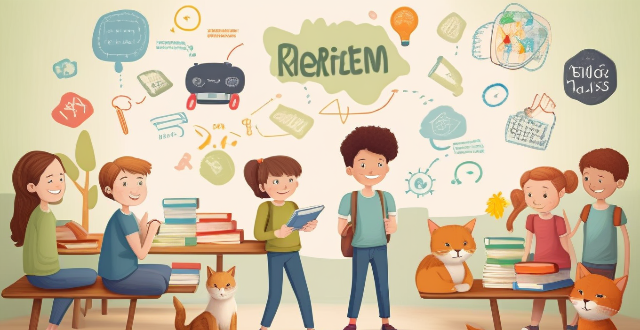Education policy updates are crucial for addressing diversity and inclusion in schools. They aim to create an equitable learning environment that caters to the needs of all students, regardless of their background or identity. These updates contribute to promoting diversity and inclusion by recognizing and valuing diverse perspectives, providing access to education for all students, promoting cultural competency among educators, encouraging inclusive curriculum design, addressing bias and stereotyping, and supporting special education needs. By implementing these policies, schools can create a more equitable and inclusive learning environment that benefits all students, regardless of their background or identity.

Education Policy Updates: Addressing Diversity and Inclusion
Education policy updates play a crucial role in addressing issues related to diversity and inclusion. These policies aim to create an equitable learning environment that caters to the needs of all students, regardless of their background or identity. Here's how these updates contribute to promoting diversity and inclusion:
1. Recognizing and Valuing Diverse Perspectives
One way education policy updates address diversity and inclusion is by recognizing and valuing diverse perspectives. This means acknowledging that students come from different cultural, socioeconomic, and linguistic backgrounds, which can influence their learning experiences. By incorporating these diverse perspectives into the curriculum, educators can create a more inclusive learning environment that celebrates differences and promotes mutual understanding.
2. Providing Access to Education for All Students
Another key aspect of education policy updates focused on diversity and inclusion is ensuring access to education for all students. This involves removing barriers that may prevent certain groups from receiving a quality education, such as financial constraints or lack of resources. Policies aimed at increasing funding for schools in underprivileged areas or providing scholarships for low-income students can help bridge this gap and ensure equal opportunities for all learners.
3. Promoting Cultural Competency among Educators
To foster an inclusive learning environment, it's essential for educators to be culturally competent. Education policy updates often include initiatives to train teachers and school staff on best practices for working with diverse student populations. This training helps educators understand and appreciate different cultures, languages, and lifestyles, enabling them to create a more welcoming and supportive classroom atmosphere for all students.
4. Encouraging Inclusive Curriculum Design
Inclusive curriculum design is another area where education policy updates can make a significant impact. By encouraging the development of curricula that incorporate diverse perspectives and experiences, schools can better engage students from various backgrounds. This approach not only benefits individual students but also helps build a more cohesive and accepting community within the school.
5. Addressing Bias and Stereotyping
Bias and stereotyping can have detrimental effects on students' academic performance and self-esteem. Education policy updates often focus on strategies to address these issues, such as implementing anti-bullying programs or providing professional development workshops for teachers on identifying and combating biases in the classroom. By actively working to eliminate bias and stereotyping, schools can create a safer and more inclusive environment for all students.
6. Supporting Special Education Needs
Students with special education needs require additional support to fully benefit from their educational experience. Education policy updates frequently emphasize the importance of providing adequate resources and accommodations for these students, ensuring they have equal opportunities to succeed academically. This includes measures like offering specialized instruction, assistive technology, and individualized education plans tailored to each student's unique needs.
In conclusion, education policy updates play a vital role in addressing issues related to diversity and inclusion by recognizing and valuing diverse perspectives, providing access to education for all students, promoting cultural competency among educators, encouraging inclusive curriculum design, addressing bias and stereotyping, and supporting special education needs. By implementing these policies, schools can create a more equitable and inclusive learning environment that benefits all students, regardless of their background or identity.